Preventive maintenance of City of Madison streets

The Stages: Crack Sealing to Reconstruction
Four stages of preventive maintenance are completed on City of Madison streets progressing from Crack Sealing, to Chip Sealing, then Resurfacing, and finally Reconstruction. The City now maintains approximately 760 miles of streets and 57 bridges greater than 20 feet in length.
How do we decide?
- All City of Madison streets are rated every two years.
- A 1 to 10 scale is used to rate the pavement, and the curb and gutter. Please note: A new street has a rating of 10.

Rating Scale: What we do based on street rating
- Pavement rated 7 or above: Crack sealing (Crack sealing pavements is done at 5 and 10 years of age.)
- Chip sealing is typically done every 5 years after the second round of crack sealing.
- Pavement rated 4 to 6: Resurfacing
- Curb and Pavement rated 3 to 5: Reconstruction

Crack Sealing: Assists in prolonging the life of paved roads
If a street has a rating of a 7 or above, Crack Sealing is used as the first preventive measure. Crack sealing pavements is done at 5 and 10 years of age. The cracks in the street are cleaned of debris and are filled with a sealant. By sealing cracks, it prevents surface water from penetrating into the pavement foundation, and the spread of cracks in the pavement.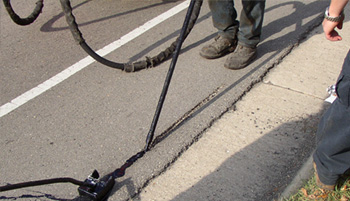
Crack Sealing: The Process
Step One: Remove debris.Step Two: Apply rubberized asphalt.
Step Three: Apply tape to hot crack sealant, so that the repaired crack can be driven on immediately. This tape prevents the hot tar from splashing onto your car.
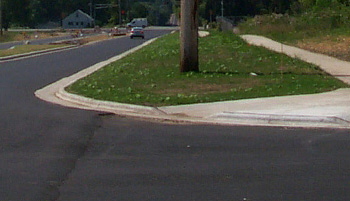
Chip Sealing: What is it?
Chip Sealing has been used by the City of Madison as a cost effective way to maintain unimproved streets. The City of Madison began using Chip Sealing on improved streets with curb and gutter and an asphaltic pavement in 2006. Chip Sealing is typically done every 5 years after the second crack seal. Chip seal is an application of a binder in the form of an emulsion (asphalt and water) and an application of an aggregate (chips), which is used to keep the water out of the pavement.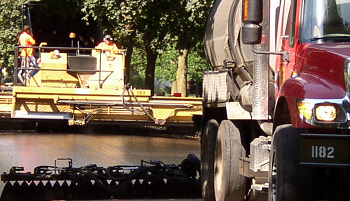
Chip Sealing: The Process
Step One: An application of asphalt emulsion and chips (Black Boiler Slag) are laid down on the street.Step Two: The Chips are rolled by a compactor.
Step Three: The road may be open to traffic, and 24 to 48 hours later, the street is swept of any loose debris.
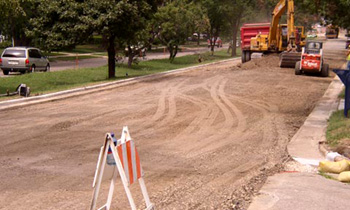
Resurfacing: Replacing deteriorated curb and gutter
The City of Madison plans to resurface approximately 10 miles of pavement in 2008. Resurfacing typically includes placing a new layer of asphalt over the existing pavement. Pavement in very poor condition is pulverized prior to a new surface being placed.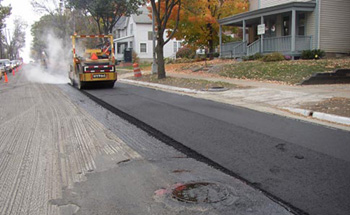
Resurfacing: The Process
Step One: Pulverize existing pavement.Step Two: Complete paving operation.
Step Three: Roll to compact the pavement.
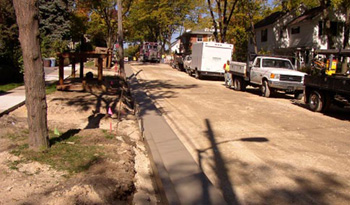
Reconstruction
Once a curb and street gets a rating of 5 or below, then a street is considered for reconstruction. A street is generally reconstructed every 30 to 40 years, based on the street rating.
The End
To learn more about Streets Construction in the City of Madison, you can visit the Engineering Website, Streets Construction.If you have questions regarding street construction, please contact the Engineering Main Office at (608) 266-4751, or to Report a Pothole, go to: Report a Pothole.